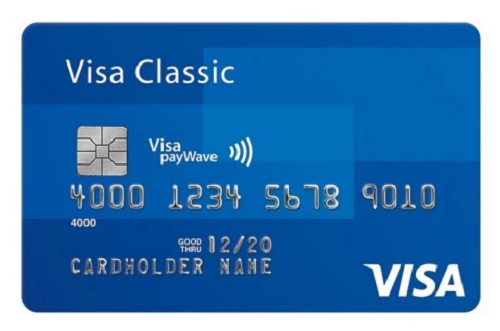
In the Holiday Edition Threats Report, Visa anticipates threat actors will use advanced schemes to exploit consumers’ information during the holiday season and shares tips and tricks for safe transactions
Kampala, Uganda | THE INDEPENDENT | Digital payment firm, Visa Inc. has released a new report predicting a surge in shopping fraud schemes during this holiday season, leaving users vulnerable.
The new Holiday Edition Threats Report identifies popular fraud tactics expected between now and January 2024 due to the rapid increase in eCommerce activities and in-person spending across retail and hospitality. Visa has also unveiled its list of top 10 habits consumers can follow to practice safe and secure shopping.
“Crooks prepare all year for the holiday shopping season, taking advantage of increased activity and consumers who let their guard down searching for the perfect gift,” said Visa Chief Risk Officer, Paul Fabara in a statement.
He added: “At Visa, we are committed to security and reliability, with a promise of 24/7 threat monitoring, even during the busiest time of the year. Consumers can rest easy this holiday season knowing Visa’s team of experts is working around the clock to stop fraud in its tracks.”
Visa cites advancements in artificial intelligence (A), increased foot traffic at stores and a higher demand for goods as some of the reasons that scammers are likely to prey on consumers both in person and online.
Their tactics, the Visa notes, include phishing schemes that, at first glance, closely mimic legitimate retailers and promotions but end up leading unknowing consumers to click through and risk exposing their personal information. Others include one-time-passcode (OTP) bypass schemes to gain access to cardholders’ accounts and an attempt to physically steal payment cards and/or phones from unsuspecting consumers in crowded retail stores, shopping malls, or parking lots.
This comes barely four months since Michael Atingi-Ego, the deputy governor at the Bank of Uganda pointed out that as more financial transactions move to digital platforms and online, the reliance on IT infrastructure grows, and so do the related IT and cyber security vulnerabilities.
“Cybersecurity and IT security, therefore, become increasingly important because the new convenience comes with increasing risks, as cyber criminals exploit vulnerabilities in digital systems to breach defenses and gain unauthorised access to valuable data, which is the “new oil,” he said during the Sixth Annual Bankers Conference in Kampala on August.14.
He said cyber-attacks targeting banks pose risks to individual institutions by disrupting critical financial operations, compromising transaction processing, access to customer accounts, or performing essential functions and thus diminishing public confidence in the banking system.
Possible solution?
Going forward, VISA has advised consumers to only stick to trusted and well-known retailers.
“If you’re considering a purchase from a store, you’re not familiar with, do some research to check their reputation and authenticity,” the report noted.
The report adds that customers need to secure their personal information by ensuring that the website uses secure technology. “When at the checkout, the website address should start with ‘https://’. The ‘s’ stands for secure and means that your data is being encrypted and sent over a secure connection,” the report states.
Also, consumers should always check the details of the One Time Password messages and review the purchase details such as the merchant’s name, and transaction amount.
This is in addition to not disclosing their OTPs over the phone, email, or messenger.
The report also warns consumers from public Wi-Fi for shopping because they are often which makes it easier for hackers to steal information.
“Also, beware of deals that are too good to be true: Offers on websites and in unsolicited emails can often sound too good to be true, especially extremely low prices on hard-to-get items. Consumers should be suspicious of such deals, as they often are,” notes the report.
Over the past five years, Visa has invested more than $10 billion in technology, including to reduce fraud and increase network security.
 The Independent Uganda: You get the Truth we Pay the Price
The Independent Uganda: You get the Truth we Pay the Price


